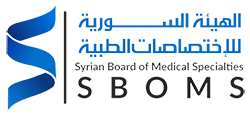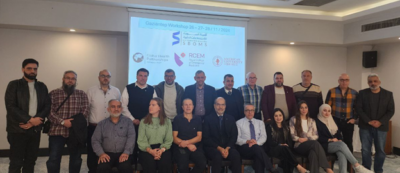The Syrian Board of Medical Specialties (SBOMS) participated in an advanced workshop in collaboration with the Royal College of Emergency Medicine (RCEM) and the American University of Beirut (AUB), held from November 26 to 28, 2024, which was organized and coordinated by the Global Health Partnerships (GHP). This partnership between international and regional academic institutions aims to enhance the quality of medical training in Syria by leveraging advanced expertise and applying global standards in medical education. The workshop focused on developing specialty programs within SBOMS, emphasizing three main specialties: Emergency Medicine, Anesthesia, and Obstetrics and Gynecology
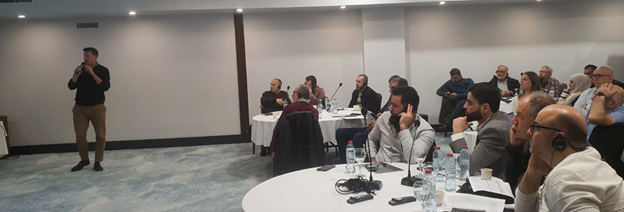
The workshop included in-depth discussions on the latest Global Standards, such as standards for clinical competence and fundamental surgical procedures, as well as best practices like the application of Case-Based Learning and Integrated Performance Assessment, with the objective of improving the quality of clinical training and advancing the academic development of resident physicians. Sessions focused on modern educational and assessment techniques, with particular emphasis on preparing physicians who possess high competency and are capable of meeting the needs of advanced healthcare systems.
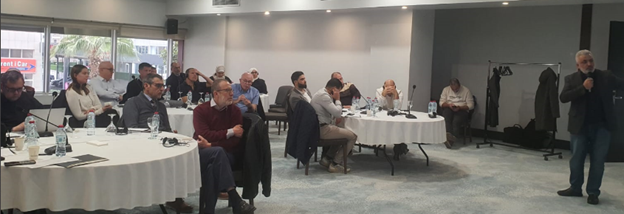
International Participation to Enhance Academic Collaboration
This collaboration provided a valuable opportunity for the exchange of knowledge between group international and regional experts from the Royal College of Emergency Medicine and the American University of Beirut with members of the scientific councils and supervisors at SBOMS. For the first time in Syria, resident doctors participated in discussions on curriculum development, representing a significant step towards the adoption of global academic standards. Discussions included evaluating current curricula and examination blueprint through the previously distributed surveys and comparing them with international benchmarks, alongside developing a diploma program in medical education for the three specialties in collaboration with partner universities. The discussions also addressed improvements in educational curricula, the development of clinical assessment methods, and the implementation of advanced strategies such as clinical simulation and evidence-based learning.
The event included interactive sessions and subgroup workshops aimed at analyzing the challenges faced in training physicians in these specialties, such as lack of medical resources and difficulties in accessing hands-on training. It also involved developing innovative solutions, such as adopting remote learning technologies and virtual simulations to address the shortage in practical training
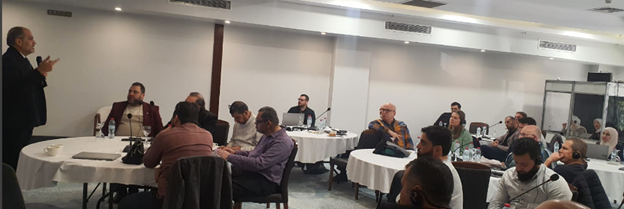
Practical Steps to Enhance Medical Training Programs
At the end of the workshop, it was agreed on specific executive steps to follow up the implementation of the recommendations issued, such as developing a field supervision plan to enhance practical training, updating educational curricula to include modern technologies, and establishing follow-up committees to ensure effective implementation. These actions aim to enhance the quality of medical specialization programs and achieve the strategic objectives of the Syrian Board of Medical Specialties. This workshop represents a strategic step towards advancing medical training in Syria, ensuring the qualification of highly skilled doctors capable of facing current and future health challenges.
Related keywords
- Syrian Board of Medical Specializatiess
- Medical Training Programs
- Royal College of Emergency Medicine
- American University of Beirut
- Em
- anesthesia
- Obstetrics and Gynecology
- Medical Education in Syria
- Clinical Training
- Modern educational technologies
